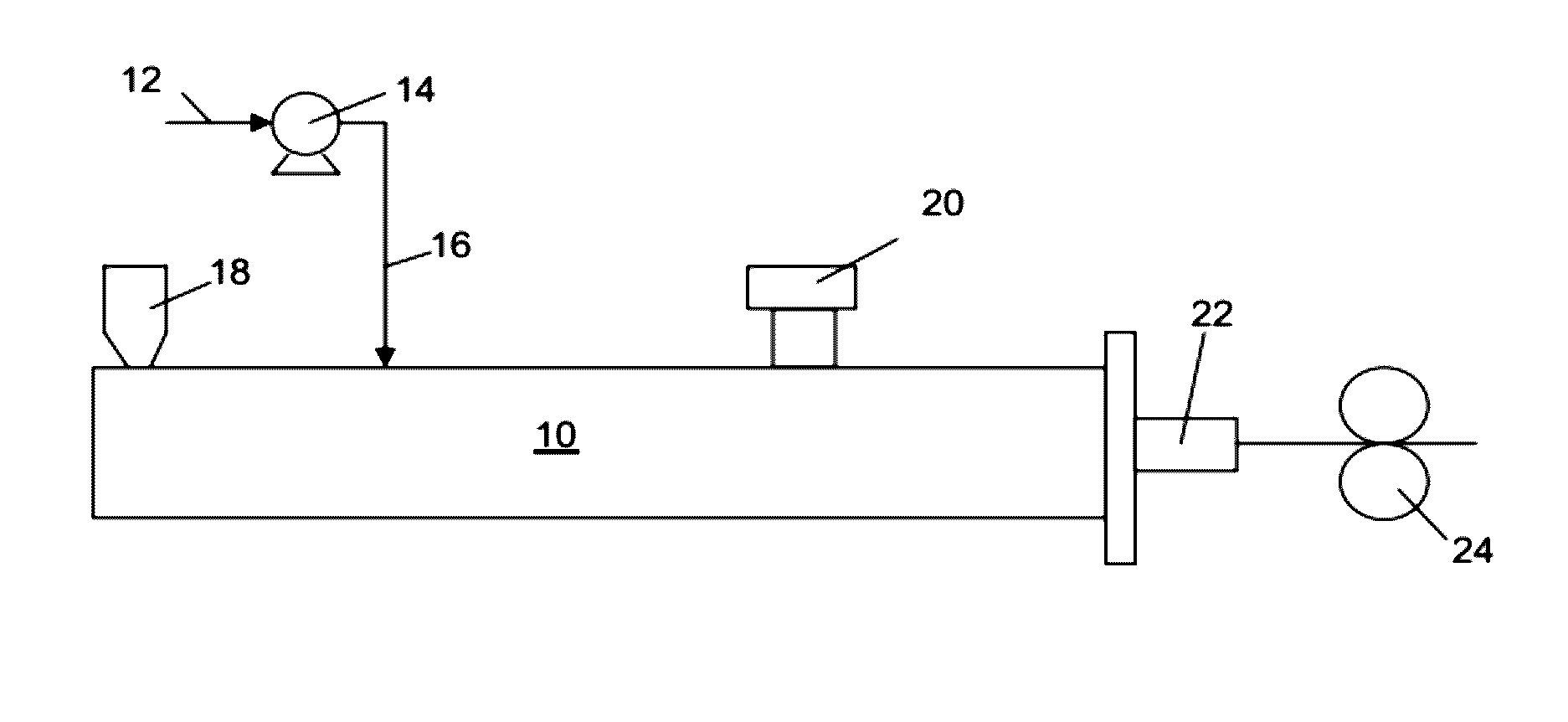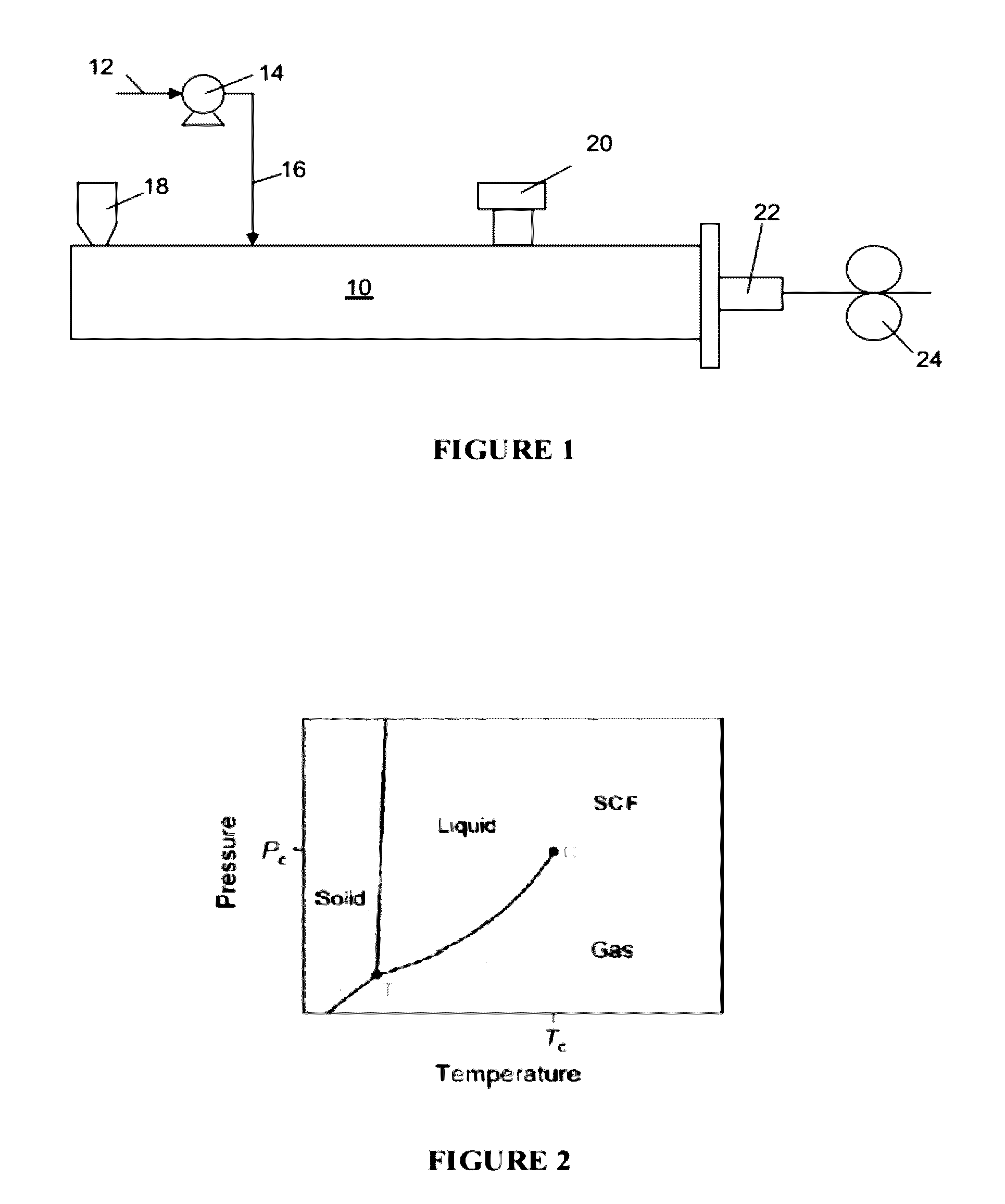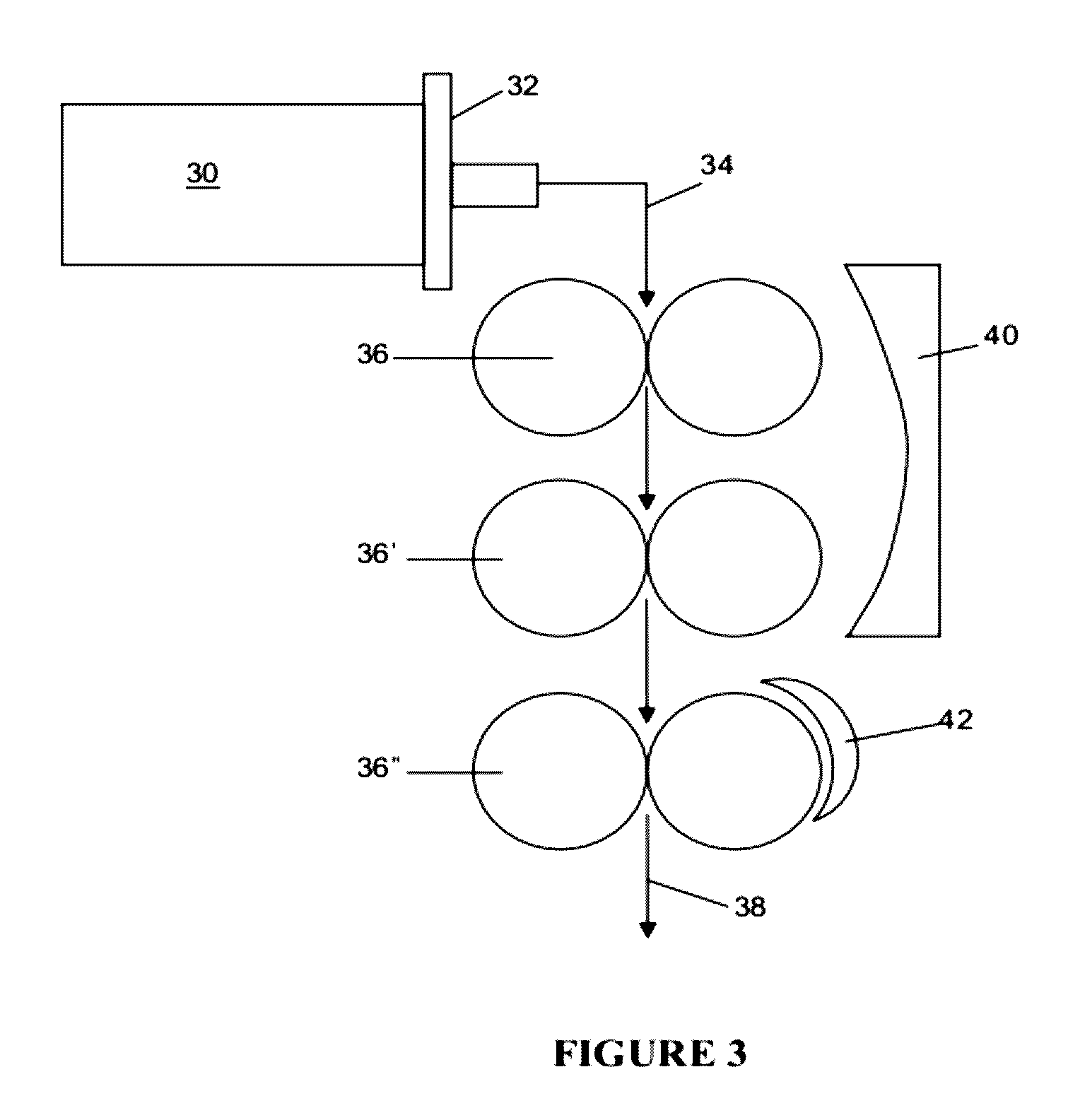Dynamically vulcanized thermoplastic elastomer film
a technology of thermoplastic elastomer and dynamic vulcanization, which is applied in the direction of filament/thread forming, tyre parts, and bulk chemical production, etc., can solve the problems of reducing the effectiveness of barrier materials, high plasticizer levels may not be desirable for the end product, and film failure, so as to improve the drawability and film properties. , the effect of improving the processability
- Summary
- Abstract
- Description
- Claims
- Application Information
AI Technical Summary
Benefits of technology
Problems solved by technology
Method used
Image
Examples
examples
[0121]Samples were prepared to demonstrate the use of supercritical fluid as a substitute for plasticizer in the thermoplastic elastomeric material and to evaluate the resulting morphology of the DVA. The following materials were used for the components employed in the Examples:
[0122]
TABLE 1Commercial Name / MaterialPotential SourceDesignationMaterial(if applicable)BIMSMBrominated poly(isobutylene-co-paramethylstyrene)N6Nylon 6UBE 1030B; UbeN6 / 66Nylon 6 / 66 copolymerUBE 5033B; UbeN11Nylon 11BESN; AtochemPlasticizerN-butylsulfonamideUniplex ® 214, UnitexChemical CorporationZnOZinc oxideKadox 911; HorseheadCorporationStearic acidStearic acidF1000Zinc StearateZinc stearateZinc Stearate DTalcTalcSG-2000; Nippon
[0123]A BIMSM masterbatch was prepared by mixing the ingredients in a Banbury internal mixer at a temperature and for a time that did not cause premature curing of the BIMSM. The BIMSM masterbatch was pre-granulated using a granulator. Masterbatches of polyamide was pre-compounded wi...
PUM
| Property | Measurement | Unit |
|---|---|---|
| thickness | aaaaa | aaaaa |
| thickness | aaaaa | aaaaa |
| wt % | aaaaa | aaaaa |
Abstract
Description
Claims
Application Information
 Login to View More
Login to View More - R&D
- Intellectual Property
- Life Sciences
- Materials
- Tech Scout
- Unparalleled Data Quality
- Higher Quality Content
- 60% Fewer Hallucinations
Browse by: Latest US Patents, China's latest patents, Technical Efficacy Thesaurus, Application Domain, Technology Topic, Popular Technical Reports.
© 2025 PatSnap. All rights reserved.Legal|Privacy policy|Modern Slavery Act Transparency Statement|Sitemap|About US| Contact US: help@patsnap.com



